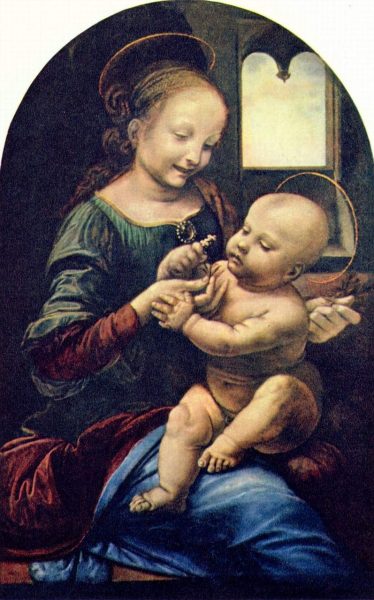Edgar Allan Poe: The Master of Darkness and Mystery

Introduction:
Edgar Allan Poe, the renowned American writer, is a figure of great intrigue and fascination for literature enthusiasts and lovers of the macabre. His works delve into the depths of the human psyche, exploring themes of horror, madness, and the supernatural. This article aims to provide a comprehensive understanding of Edgar Allan Poe and shed light on the significance of his contributions to the world of literature.
1. Who is Edgar Allan Poe?
Edgar Allan Poe was born on January 19, 1809, in Boston, Massachusetts. He had a tumultuous and tragic life, marked by numerous personal hardships and financial struggles. Despite these challenges, Poe’s extraordinary imagination and unique writing style cemented his reputation as one of the greatest American writers of all time.
1.1 Early Life and Influences

Poe’s early years were greatly influenced by the loss of both his parents at a young age. He was adopted by John Allan, a wealthy tobacco merchant, who provided him with a good education. However, Poe’s relationship with Allan became strained, and he eventually left home to pursue his passion for writing.
1.2 Writing Style and Themes
Poe’s writing style is characterized by its dark, atmospheric settings, intricate plots, and vivid descriptions. His works often explore themes such as death, crime, guilt, and the supernatural. Poe’s ability to create a sense of mystery and suspense captivated readers and has influenced countless authors since.
2. Historical Evolution of Edgar Allan Poe’s Works
Edgar Allan Poe’s literary career spanned a relatively short period, yet his impact on the genre of horror and detective fiction remains unparalleled.
2.1 Early Works and Literary Criticism
Poe’s career began with a collection of poetry titled “Tamerlane and Other Poems” in 1827. However, it was his critical essays and reviews that gained him recognition in the literary circles of the time. Poe’s sharp wit and unfiltered opinions made him a prominent literary critic, but his harsh critiques also garnered him numerous enemies.
2.2 Short Stories and Tales of the Macabre
Poe’s most significant and enduring contributions to literature are his short stories and tales of the macabre. He revolutionized the genre by incorporating psychological depth into his characters and employing first-person narration to immerse readers in the world of his narratives. Some of his most famous works include “The Tell-Tale Heart,” “The Fall of the House of Usher,” and “The Masque of the Red Death.”
2.3 Contributions to the Detective Fiction Genre
Poe’s impact on the detective fiction genre cannot be overstated. His character C. Auguste Dupin, featured in stories such as “The Murders in the Rue Morgue” and “The Mystery of Marie Rogêt,” laid the foundation for the modern detective archetype. Poe’s meticulous attention to detail and logical reasoning set a standard for future authors in the genre.
3. Edgar Allan Poe’s Influence and Legacy
Edgar Allan Poe’s works continue to captivate readers and inspire countless artists and writers across various mediums.
3.1 Literary Influence
Poe’s innovative storytelling techniques and unique blend of horror and psychological suspense have influenced generations of writers. Authors such as Arthur Conan Doyle, H.P. Lovecraft, and Stephen King have cited Poe as a significant source of inspiration.
3.2 Cultural Impact
Poe’s cultural impact extends beyond the realm of literature. His iconic imagery and themes have permeated popular culture, appearing in films, music, and even fashion. The dark, brooding persona associated with Poe has become synonymous with a certain aesthetic sensibility.
Conclusion:
Edgar Allan Poe’s literary prowess and enigmatic persona have left an indelible mark on the world of literature. His exploration of the human psyche and his ability to create an atmosphere of suspense and dread continue to captivate audiences today. As we delve into the mysterious world of Poe’s works, we are reminded of his enduring legacy and his rightful place among the greats of American literature.
FAQ
How did Edgar Allan Poe influence the detective fiction genre?
What are some of Edgar Allan Poes most famous works?
What is Edgar Allan Poes cultural impact?
Flere Nyheder
Saxofonist med dj: energi til bryllupper og klubnætter
Introduction: Edgar Allan Poe, the renowned American writer, is a figure of great intrigue and fascination for literature enthusiasts and lovers of the macabre. His works delve into the depths of the human psyche, exploring themes of horror, madness,...
06 november 2025
Den perfekte bryllupsfotograf til din store dag
Introduction: Edgar Allan Poe, the renowned American writer, is a figure of great intrigue and fascination for literature enthusiasts and lovers of the macabre. His works delve into the depths of the human psyche, exploring themes of horror, madness,...
30 oktober 2025
Hvordan du finder kunstprojekter i dit lokalområde
Introduction: Edgar Allan Poe, the renowned American writer, is a figure of great intrigue and fascination for literature enthusiasts and lovers of the macabre. His works delve into the depths of the human psyche, exploring themes of horror, madness,...
02 oktober 2025
Symbolik i klassisk og moderne billedkunst
Introduction: Edgar Allan Poe, the renowned American writer, is a figure of great intrigue and fascination for literature enthusiasts and lovers of the macabre. His works delve into the depths of the human psyche, exploring themes of horror, madness,...
02 oktober 2025











